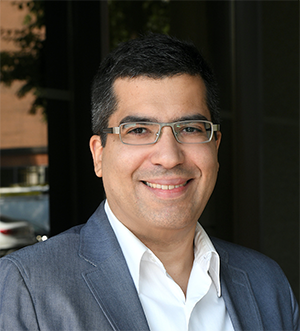Will Budget 2019 Change the National Conversation? For Science, Hardly.
Author(s):
Creso Sá

Budget 2019 was not just business as usual for the Liberal Party of Canada. Mired in the never ending fallout of the SNC-Lavalin affair, the Trudeau government was in desperate need to steer the national debate towards something resembling good press for it After all, this is an election year.
Hence, there is something in “Investing in the Middle Class” for everyone. It is a campaign piece, clearly outlining the Liberal’s talking points and previous financial commitments. Science is a relatively small component, but it follows the general pattern. This is not a year of big ticket announcements, but, rather, of spreading money around a number of constituents.
There is new funding for 500 additional master’s scholarships and 167 doctoral three-year scholarships – recall that PhD programs in Canada usually last four years or longer. Parental leave for scholarship-funded graduate students is increased from six months to a year.
We are reminded that last year’s budget included “the largest ever increase in funding for fundamental research through Canada’s granting councils”, and that, since 2016, the government “has committed more than C$9.4 billion to support Canadian scientists and researchers”. These points were echoed in a tweet by science minister Kirsty Duncan following the budget’s release. She also noted that, in the wake of the previous Conservative government’s perceived hostility to science, “we have been working hard to return science and research to their rightful place. We unmuzzled scientists, we brought back the long-form census, and we reinstated the position of chief scientific advisor.”
Special allocations are made to a number of research organisations in fields such as cancer, neuroscience, genomics and atomic physics. Here, the budget veers from the course advocated in the 2017 Fundamental Science Review (FSR), which has been widely supported by scientists. Basically, the contention was that for decades the federal government created a scattering of flashy funding schemes that pulled federal research dollars in multiple directions, with varying levels of peer-review and oversight. This has weighted on the budgets of the federal research councils, which are the main sources of funding for merit-based investigator-initiated research, reducing success rates and lowering the funding available for fundamental investigation. The FSR called for a halt in the proliferation of boutique initiatives, a rationalization of award mechanisms and reinvestment in the research councils.
Budget 2018 made a credible case that the message had been heard, with multi-year commitments to fundamental research (although falling far short of the levels of the investment called for). However, this year clearly shows that when it comes to science lobbying, it is business as usual in Ottawa. An apparent mea culpa comes in the form of a Strategic Science Fund to be created in 2022, described vaguely as a “principles-based framework for allocating federal funding that includes competitive, transparent processes” to support “third-party science and research organisations”. Given the lack of urgency in foreshadowing this announcement, it can arguably be read as a promise that things will eventually be different.
All things considered, have the Liberals done enough to earn the science vote? Those Ottawa insiders embedded in the federal lobbying networks have a vested interest in the system, and a number of them have been quite successful in securing support to their organizations. I see no reason why they would be displeased, and this year’s budget delivered good news for many groups.
Conversely, those who judge the Liberals against their early lofty promises and the expectations raised by the FSR are bound to be disappointed. But will they be disappointed enough to cast their vote elsewhere? The Conservatives are currently the most serious challenger to Trudeau, but while the memories of how the last government dealt with science may not be insurmountable, the party’s conspicuous lack of any serious science platform does not inspire confidence.
One thing is clear: there will be no single science vote. Anyone’s pretence of speaking for “science” ignores the multiple competing and even contradictory interests at play in Canada’s scientific community.
More on the Author(s)
Creso Sá
Centre for the Study of Canadian and International Higher Education, University of Toronto
Professor and Director
A version of this article was published in Times Higher Education

